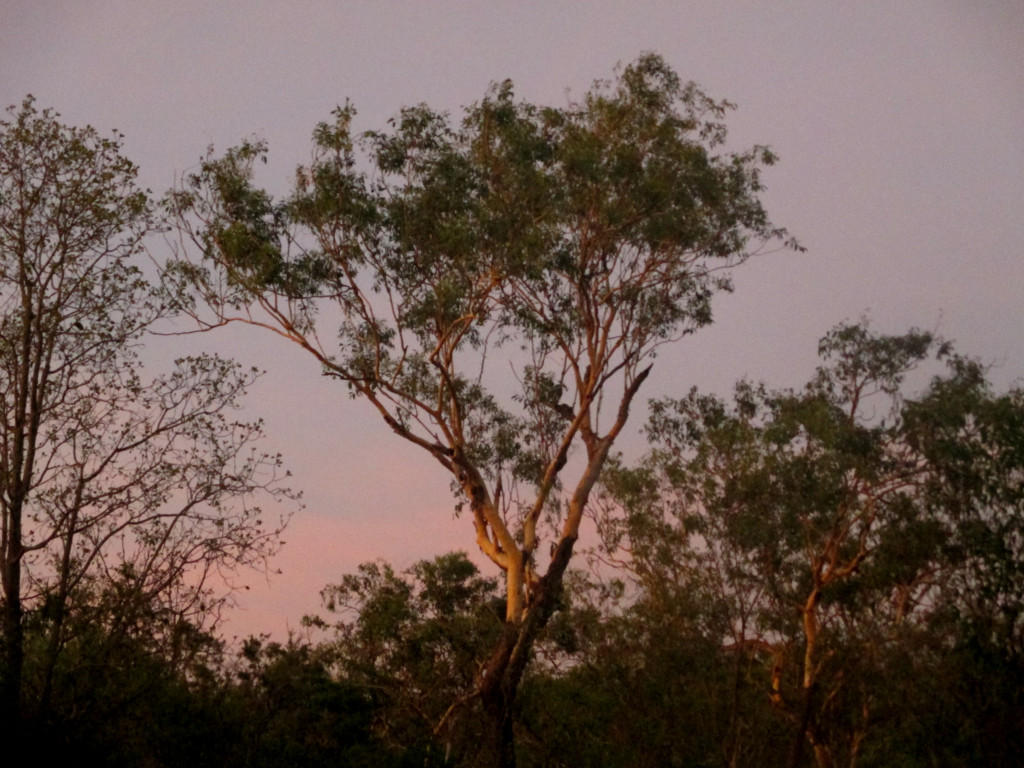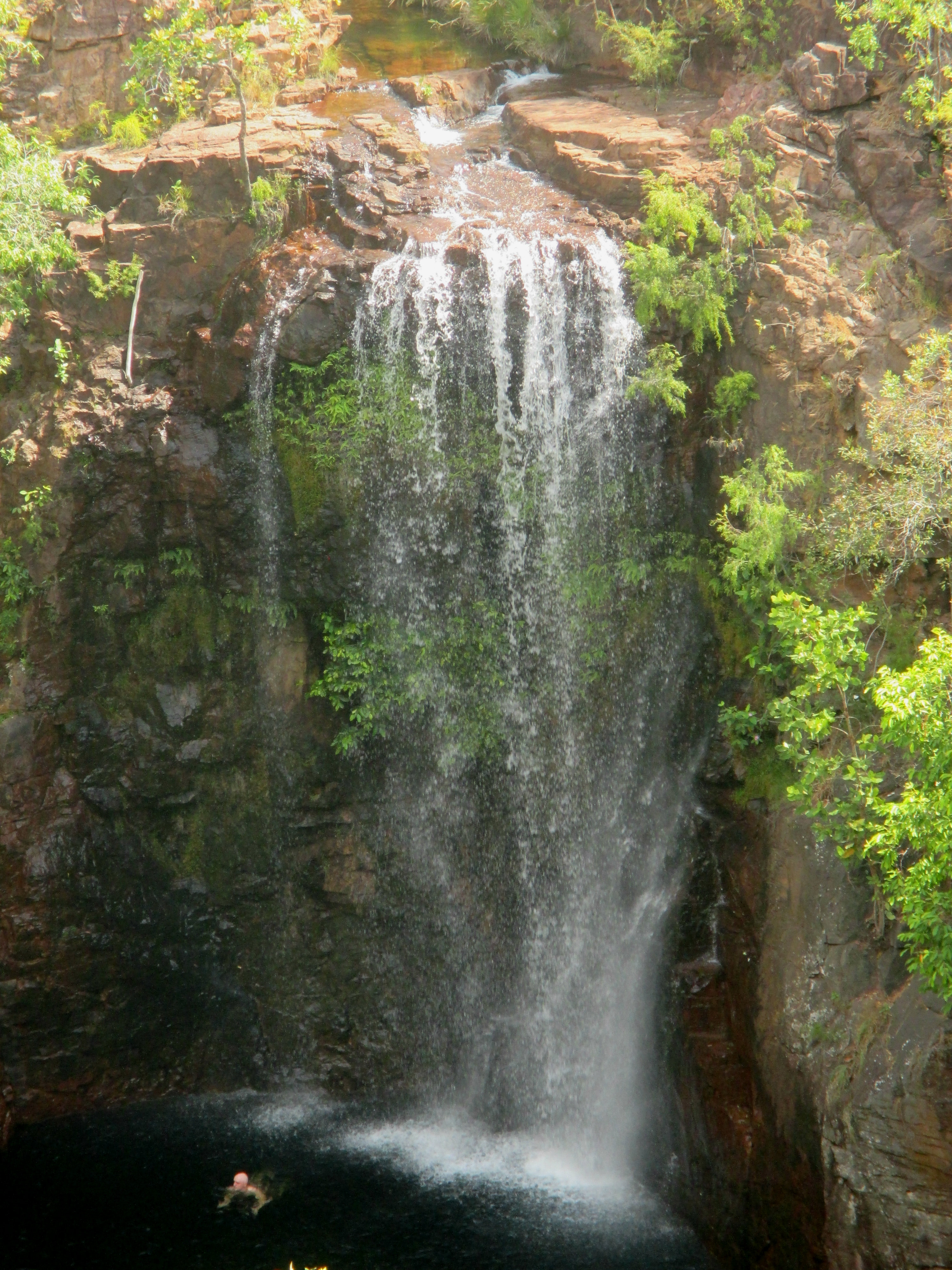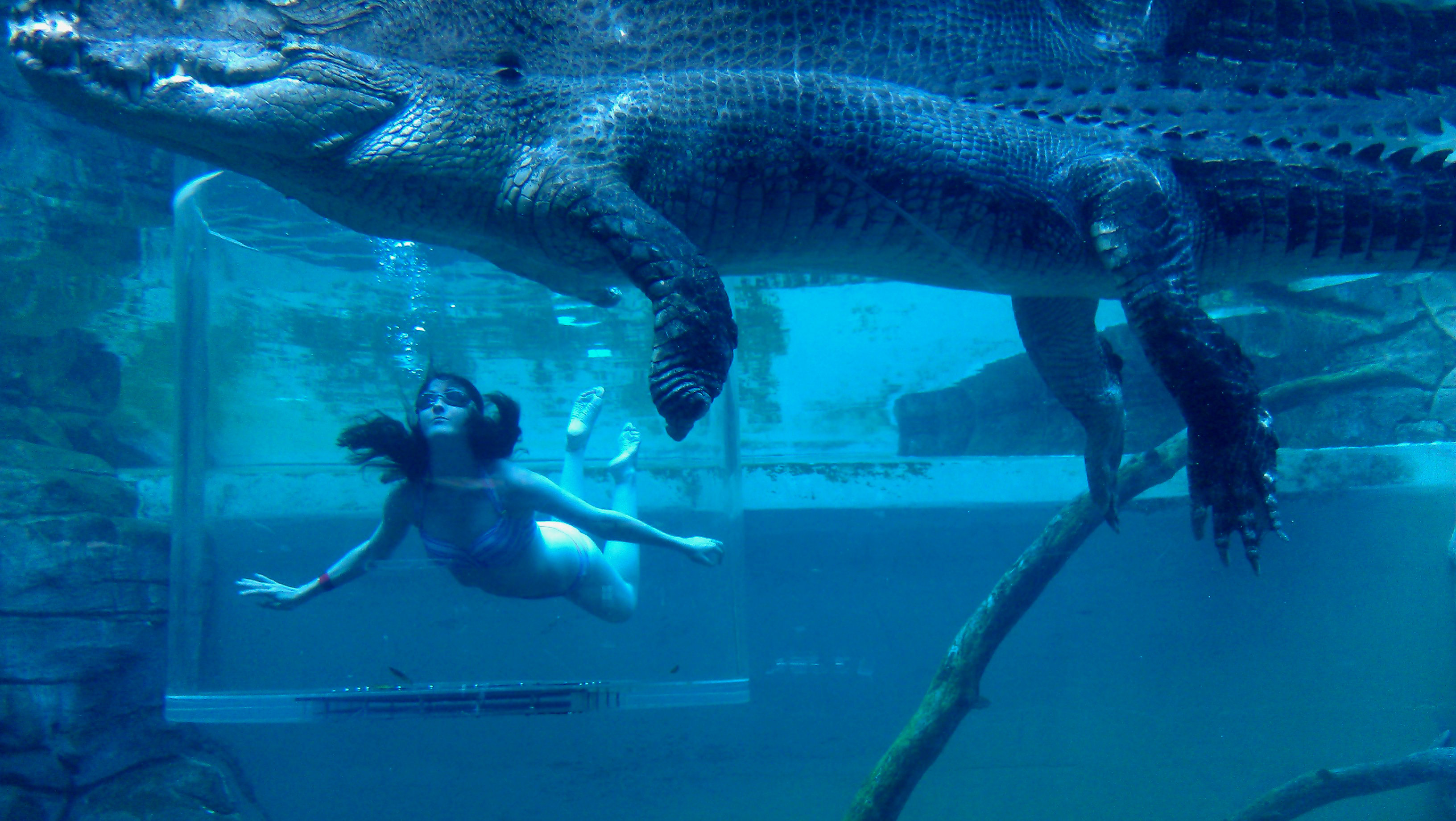Published on February 1, 2014 in the Singapore American Newspaper:

I prepared for our long weekend in Australia with a thorough Googling: first-aid for snake bites, how to recognize which spiders were poisonous and which were just enormous, and what to do if I came face to face with a crocodile (apparently, sprint away). If that seems like a bit much, it was because we weren’t visiting one of Australia’s metropolises but rather, we were going camping in Litchfield National Park.
The flight to Darwin, the capital city of the Northern Territory, was a manageable four hours from Singapore. As October is just the beginning of Australia’s roasting summer, the petite port city was bathed in dry heat and sunshine hot enough to make you squint. It’s a sleepy town that caters to adventurous tourists and features a cheerful, easygoing nightlife. We spent the entirety of our first day there, soaking in the laidback atmosphere and obtaining supplies for our weekend in the wilderness. Dinner that night was along the wharf at a restaurant called il Lido, where we sampled the native fare: kangaroo meat kebabs, freshly caught barramundi and a selection of the local bottled ales. We picked our plates clean.
Darwin is surrounded by an array of national parks, nature reserves, and conservation areas. We decided to spend our two days and two nights of camping in Litchfield National Park as it was only 100 kilometers southwest of Darwin. Including myself and my husband, we were a group of six. The two couples we were traveling with had decided to rent campervans equipped with small gas stoves, squat fridges, and narrow beds. We took a different route, opting instead to rent old-fashioned camping equipment from a local business as well as a small car. Driving along the narrow highway, I wondered what the pros and cons of each camping style would be. Outside my window was a vast tricolor landscape: red earth, spring green trees, and blistering blue skies.
Our first stop upon reaching the outskirts of the park was at the magnetic termite mounds. Built by thousands of termites, these monoliths stand several meters tall and, amazingly, are oriented north-south for optimal climate control. We then took the shady, creek-side path to Florence Falls, a picturesque waterfall that spills into a plunge pool. After trekking through the high heat of the afternoon, leaping into that crystal clear swimming hole was unspeakably refreshing. Bottles of local beer in hand, we whiled away the day here as well as a short distance away at the Buley Rock Pools, a lazy cascade that links a series of natural shallow pools. Every year Litchfield National Park attracts over 260,000 visitors and though a number of other tourists (both Australian and foreign) were present, these lush sites never felt too crowded.
Campsites could be found throughout the park, each with their own set of rules and amenities. Some allow motor homes while some only allowed campervans or old-fashioned tents. Almost all sites have public bathrooms that offer clean toilets (with toilet paper!), sinks with potable water, and several showers. There is a minimal fee for camping overnight and guests are trusted to deposit their dues in locked boxes posted around the area. The grounds near Wangi Falls provided us with a three-pronged campsite perfect for our group and just as we were pulling in, we met a good omen: a wallaroo. Smaller than a kangaroo but larger than a wallaby, these gregarious creatures could be spied hopping through the brush throughout the whole park.
While the others set up a table and chairs between the campervans, we pitched our two-man tent and unrolled our swags. A nearby picnic area provided a grill for our burgers, sausages, and ears of corn, and dinner was lively. There was a call for s’mores and so we built a small fire on the sandy ground. Lacking graham crackers, Hershey’s chocolate bars, and jumbo American marshmallows, we improvised with what we had been able to find at the Woolworths in Darwin: digestive biscuits, bars of Lindt milk chocolate, and a packet of squat pink and white marshmallows sporting a thin coat of sugar. Not quite the s’mores I had growing up, but not bad.
The night was broiling and sleep was an erratic, sweaty affair. While our tent had netted windows that allowed a breeze in, the campervans were stifling. However, they were mighty helpful at breakfast. Their fridges and kitchenware were invaluable; a cooler couldn’t have kept our meat and milk from spoiling in the outback’s brutal heat and I don’t know where we would have rented pans and spatulas during our short stay.
We set off for the majestic Wangi Falls at midmorning but were prevented from our much-desired swim due to a recent crocodile sighting and so trekked to the Tolmer Falls lookout instead. It was a hot, dry hike through the bush. Sandstone and quartzite had formed blocky, colorful shapes and sharp cliff faces. Far below the viewing platform were pools as bright and clear as green glass. After a quick lunch of sandwiches, we embarked on the trail to the Cascades waterfalls, a hike with more challenging and varied terrain: dense rainforest, leech-populated streams, layers of red rock, and desert plains.
Our choice of campsite for that night, the Florence Falls area, didn’t have any barbecues but the campervans’ stovetop cookers worked in a pinch for dinner and also for the following morning’s breakfast. Not long after washing up, my husband and I bundled our gear and bid our friends goodbye. We would meet them at the airport later; there was one more thing I wanted to do in Darwin before we left.
Nestled in the center of the city, Crocosaurus Cove is home to a number of prehistorically large crocodiles, including Burt, the star of Crocodile Dundee, and I intended to swim with one. Clad in my bikini and a pair of goggles, I climbed into a mesh and plexiglass cylinder (comfortingly named the Cage of Death) and was lowered into the den of Chopper, who was over 80 years old and missing his two front claws thanks to battles with other crocodiles in the wild. Despite the thick barrier, it was impossible not to feel awed, small and extremely edible next to Chopper’s monstrous, lithe form. My pre-Australia Internet research had instructed me to fight back should I find myself caught in a crocodile’s jaws, but as I swam alongside several tons of muscled reptile, the very thought of struggling seemed ludicrous. It just goes to show that there is only so much the Internet can teach you about the world; at some point you’ve got to get out there and tackle it yourself.


